
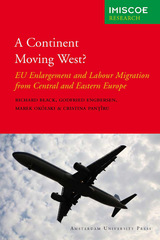
A Continent Moving West? argues that the conceptualization of migration as a one-way or long-term process is becoming increasingly wide of the mark. Rather, east-west labor migration in Europe, in common perhaps with other flows in and from other parts of the world, is diverse, fluid, and influenced by the dynamics of local and sector-specific labor markets and migration-related political regulations.
The papers in this book contribute to critical understanding of the east-west migration within the European Union after the 2004 enlargement, from the new to the old member states.

Just as trade, finance, information, and technologies are moving rapidly across borders, so too have labor markets and transnational migrant communities. Migrants are sending large quantities of money back to their countries of origin in the form of philanthropy, remittances, and commercial investments. They are also sharing knowledge and skills learned or developed abroad. Is greater global equity an inevitable consequence of such diaspora philanthropy, or can this giving actually aggravate inequity? Diasporas and Development examines the positive—and sometimes negative—impacts of diaspora engagement in Africa, Asia, Central America, and the Caribbean.
How can the equity impact of this global giving be maximized? Might creative intermediary mechanisms or public policies help channel diaspora philanthropy in positive directions? They also explore motivations for the dark sides of diaspora engagement such as support for extremist organizations, organized crime, ethnic violence, and even civil war. Diasporas and Development aims to deepen the understanding of the promise and pitfalls of diaspora philanthropy and how it might help bridge the distances between societies in an unequal world.


The safety of the work place is now a highly visible public issue. Many are calling for tighter regulation to reduce worker risk, while others feel government intervention is ineffective and costly. Here Kip Viscusi explores how well markets for hazardous jobs actually work. According to classical economics, other things being equal, a worker will demand more pay for a hazardous job than a safe one. However, this assumes that job related hazards are known, when often they are not. Using recent advances in the economics of information, Viscusi develops a theory of individual responses to job hazards under conditions of uncertainty.
His assumptions are that hazards are uncertain events and that learning about them is a process that takes place over time. He then employs this analysis to study the performance of job markets in matching persons and jobs and in compensating persons for exposure to hazards. Finally he tests his adaptive model of the decision to quit and finds substantial evidence that risks are indeed reflected in wage differentials and quit behavior.
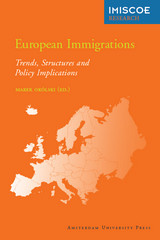

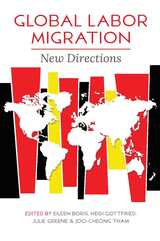
Global Labor Migration presents new multidisciplinary, transregional perspectives on issues surrounding global labor migration. The essays go beyond disciplinary boundaries, with sociologists, ethnographers, legal scholars, and historians contributing research that extends comparison among and within world regions. Looking at migrant workers from the late nineteenth century to the present day, the contributors illustrate the need for broader perspectives that study labor migration over longer timeframes and from wider geographic areas. The result is a unique, much-needed collection that delves into one of the world’s most pressing issues, generates scholarly dialogue, and proposes cutting-edge research agendas and methods.
Contributors: Bridget Anderson, Rutvica Andrijasevic, Katie Bales, Jenny Chan, Penelope Ciancanelli, Felipe Barradas Correia Castro Bastos, Eileen Boris, Charlie Fanning, Judy Fudge, Jorge L. Giovannetti-Torres, Heidi Gottfried, Julie Greene, Justin Jackson, Radhika Natarajan, Pun Ngai, Bastiaan Nugteren, Nicola Piper, Jessica R. Pliley, Devi Sacchetto, Helen Sampson, Yael Schacher, Joo-Cheong Tham, and Matt Withers

JoAnna Poblete's Islanders in the Empire: Filipino and Puerto Rican Laborers in Hawai'i takes an in-depth look at how the two groups fared in a third new colony, Hawai'i. Using plantation documents, missionary records, government documents, and oral histories, Poblete analyzes how the workers interacted with Hawaiian government structures and businesses, how U.S. policies for colonial workers differed from those for citizens or foreigners, and how policies aided corporate and imperial interests.
A rare tandem study of two groups at work on foreign soil, Islanders in the Empire offers a new perspective on American imperialism and labor issues of the era.
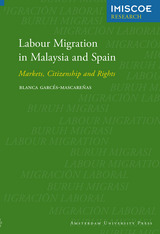
This study confronts the double paradox of state-regulated labor migration: while markets benefit from open borders that allow them to meet the demand for migrant workers, the boundaries of citizenship impose a degree of limitation on cross-border migration. At the same time, the exclusivity of citizenship requires closed membership, yet civil and human rights undermine the state’s capacity to exclude foreigners once they are inside the country. By considering how Malaysia and Spain have responded to the demand for foreign labor, this book analyzes the unavoidable clash of markets, citizenship, and rights.

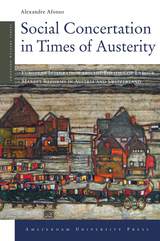

Southern out-migration drew millions of southern workers to the steel mills, automobile factories, and even agricultural fields and orchards of Ohio, Indiana, Michigan, and Illinois. Through vivid oral histories, Chad Berry explores the conflict between migrants' economic success and their "spiritual exile" in the North. He documents the tension between factory owners who welcomed cheap, naive southern laborers and local "native" workers who greeted migrants with suspicion and hostility. He examines the phenomenon of "shuttle migration," in which migrants came north to work during the winter and returned home to plant spring crops on their southern farms. He also explores the impact of southern traditions--especially the southern evangelical church and "hillbilly" music--brought north by migrants.
Berry argues that in spite of being scorned by midwesterners for violence, fecundity, intoxication, laziness, and squalor, the vast majority of southern whites who moved to the Midwest found the economic prosperity they were seeking. By allowing southern migrants to assess their own experiences and tell their own stories, Southern Migrants, Northern Exiles refutes persistent stereotypes about migrants' clannishness, life-style, work ethic, and success in the North.
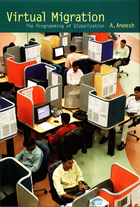
Aneesh draws on the sociology of science, social theory, and research on migration to illuminate the practical and theoretical ramifications of virtual migration. He combines these insights with his extensive ethnographic research in offices in three locations in India—in Delhi, Gurgaon, and Noida—and one in New Jersey. Aneesh contrasts virtual migration with “body shopping,” the more familiar practice of physically bringing programmers from other countries to work on site, in this case, bringing them from India to New Jersey. A significant contribution to the social theory of globalization, Virtual Migration maps the expanding transnational space where globalization is enacted via computer programming code.
READERS
Browse our collection.
PUBLISHERS
See BiblioVault's publisher services.
STUDENT SERVICES
Files for college accessibility offices.
UChicago Accessibility Resources
home | accessibility | search | about | contact us
BiblioVault ® 2001 - 2025
The University of Chicago Press









